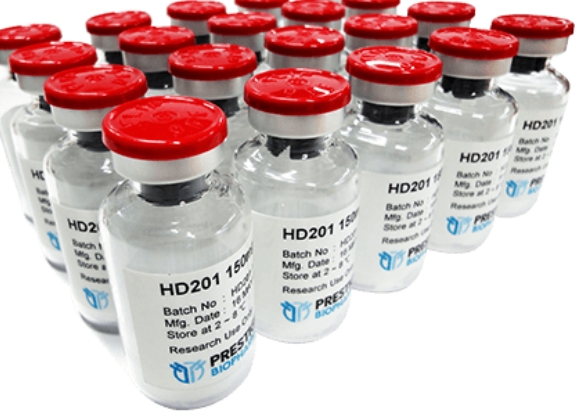Prestige Biopharma, a company focusing on novel antibody therapies, said its trastuzumab biosimilar candidate, HD201 (Tuznue), showed an equivalent pharmacokinetic (PK) profile to Roche’s original drug Herceptin (ingredient: trastuzumab).

The rate of treatment-emergent adverse events after administering Tuznue was also slightly lower than the original used in the U.S. and Europe, it added.
The company conducted a new study in Australia with 105 healthy males to confirm whether the already completed phase 1 and 3 clinical trial data of Tuznue demonstrates similar PK to Herceptin used in the U.S. The study was designed based on consultation with the U.S. Food and Drug Administration (FDA).
In the study, 105 healthy males were randomly assigned to three groups, and each group received either Herceptin used in the U.S. or Europe or Tuznue. The drug candidate performed PK equivalence to Herceptin and showed a similar safety profile.
Prestige Biopharma filed for European Medicines Agency’s (EMA) approval two years ago and planned to apply for FDA approval by the end of this year. According to the company, the annual Herceptin sales in the U.S. are estimated to be around 3 trillion won ($2.6 billion).
“Prestige Biopharma is pleased to show the excellence and value of HD201 through the study results of the bridging study published in an international journal,” CEO Park So-yeon said. “We will step up to enter the North American market to provide treatment opportunities for more patients.”
Besides, Prestige Biopbharma’s key affiliate Prestige Biologics, a company providing CDMO services, is waiting for FDA and EMA’s inspection for good manufacturing practice in plants due to the Covid-19.
The study results were published in a global journal Pharmacology Research and Perspectives on Sunday.

